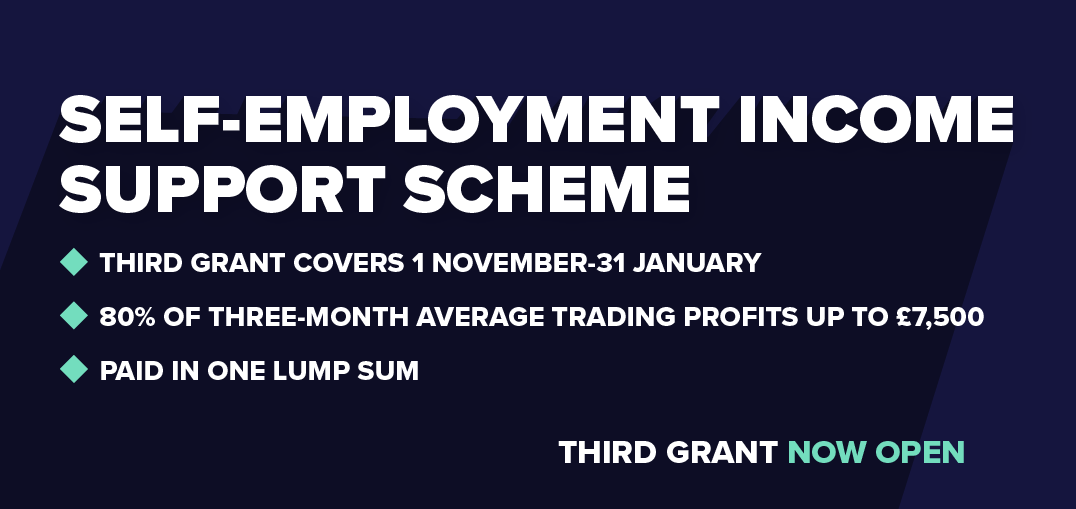
The rules on who is eligible to claim are different to those for the previous SEISS grants. However, a Self Assessment tax return for the tax year 2018 to 2019 showing self-employment income (unless one of the existing exceptions applies) will still need to have been submitted in order to claim.
The third grant will be based on 80% of three months’ average trading profits, paid out in a single taxable instalment capped at £7,500, and will cover the period from 1 November to 29 January 2021. Self-employed people who are eligible will be able to claim the third grant at any time from 30 November 2020 to 29 January 2021.
As previously, the third grant will also be subject to Income Tax and self-employed National Insurance and must be reported on 2020 to 2021 Self Assessment tax returns, due by 31 January 2022.
What customers should do to get ready
- Check whether they are eligible to claim, as the eligibility rules are different to the previous SEISS grants.
- Be aware that, like SEISS 1 and 2, tax agents cannot claim this grant on behalf of their clients; they must do so themselves. If an agent tries to make a claim on a client’s behalf, it will trigger a fraud alert that will delay the payment.
Who is eligible
To make a claim for the third grant, customers must meet a number of conditions, and make an honest assessment about whether they reasonably believe their trading profits will be significantly reduced due to coronavirus.
As previously, the third grant will be subject to Income Tax and self-employed National Insurance and must also be reported on 2020-2021 Self Assessment tax returns.
To make a claim for the third grant, customers must – as previously:
- be self-employed or a member of a partnership – they cannot claim the grant if they trade through a limited company or a trust
- have traded in both the tax years 2018 to 2019 and 2019 to 2020.
For this third SEISS grant customers must also now:
- either be currently trading but are impacted by reduced business activity, capacity or demand, or have been previously trading but are temporarily unable to do so due to coronavirus
- declare that they intend to continue to trade, or restart trading, and that they reasonably believe that the impact on their business will cause a significant reduction in their trading profits
- only claim if the reduction in profits is caused by reduced business activity, capacity or demand, or inability to trade due to coronavirus – reduction in profits due to increased costs (such as having to buy masks) does not make a business eligible for the third SEISS grant.
When deciding whether the reduction is significant, customers will need to consider their wider business circumstances.
We expect claimants to make an honest assessment about whether they reasonably believe their trading profits will be significantly reduced compared to what they would otherwise expect to achieve during this period.
Their business must have been impacted on or after 1 November 2020. Customers must keep evidence that shows how their business has been impacted by coronavirus, resulting in reduced activity, capacity or demand, or a temporary inability to trade.
A fourth grant will also be available from February 2021 to April 2021. We’ll tell you more about that nearer the time, including how much it will be and the rules for claiming.
Categories: Business Support, Coronavirus Scheme, Self-employed Income Support Scheme
















